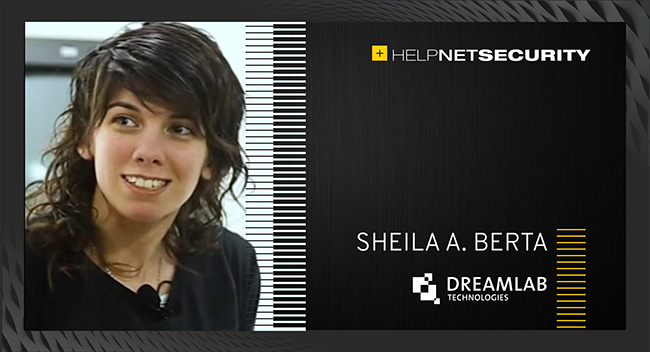Cybersecurity training: Learn how to secure containerized environments
Driven by a strong curiosity to know how computers and computer programs are made, how they work, and how safe they are, Sheila A. Berta, Head of Security Research at Dreamlab Technologies, has been interested in cybersecurity since her early teens.

For the last several years, she has been conducting investigations in a variety of information security areas like hardware hacking, car hacking, wireless security, malware and – more recently – Docker, Kubernetes and cloud security.
“At the moment everything tends to migrate to containerized, serverless and/or cloud environments with a microservices focus, so DevOps and other IT professionals have been forced to learn how to implement and work with these infrastructures,” she explained her more recent research interests.
“The attack and defense techniques that can be applied in these environments are completely different from the techniques applied in ‘traditional’ architectures, so it’s very important that security professionals now acquire the necessary skills to competently protect these modern infrastructures.”
One of the ways they can achieve this is to attend a training course on the subject.
Virtual trainings through HITBSecTrain
During HITBCyberWeek, which is scheduled to start on November 15, Berta’s colleague Sol Ozzan will hold an online workshop focused on Docker and Kubernetes defense that will serve as a preview for a 2-day virtual training courses that the two will conduct through HITBSecTrain in February next year.
“Our Attack and Defense on Docker, Swarm and Kubernetes training at HITBSecTrain will provide attendees with the practical knowledge they need to analyze and secure containerized & Kubernetes-orchestrated environments,” Berta told Help Net Security.
“Our trainings have a lot of hands-on laboratories. We start with the Docker fundamentals and then jump into the labs with Docker Black Box and White Box analysis, as well as defense on containers and Docker images. At the end of the first day, we focus on Swarm (official Docker orchestrator) with a variety of practices in attack and defense.”
The second day is fully dedicated to Kubernetes. They start with the fundamentals of this technology and then dive into the hands-on with Black Box, Gray Box, and White Box analysis. Sophisticated attack techniques will be explained, as well as advanced security features that can be implemented in this famous orchestrator.
This is not the first time she has held a container environment-related training – she also did it at Black Hat USA 2020. But, as can be expected, they are continuously updating the materials: they have added lately more attack techniques in different Docker and Kubernetes components, such as the Docker Registry and Kubernetes Kubelet, and more open source tools that can be used to analyze and secure these infrastructures.
She also couldn’t help but speak highly of another 2-day training course that two other Dreamlab Technologies colleagues are set to hold in February.
“I had the pleasure of seeing how the trainers built the materials for the Attacking and Securing Industrial Control Systems (ICS) course and I have to say that it is the most practical training on ICS hacking I have ever seen. It even has practices for air-gap bypass techniques,” she noted.
“I believe practical experience is very important when it comes to this kind of topics. We have prepared a realistic ICS environment that students will access throughout the course to perform all the exploitation techniques explained by the trainers.”